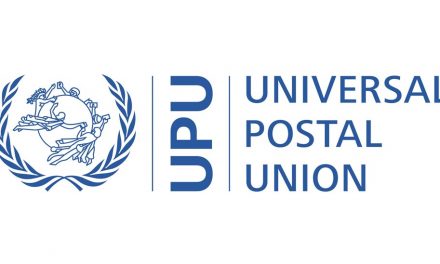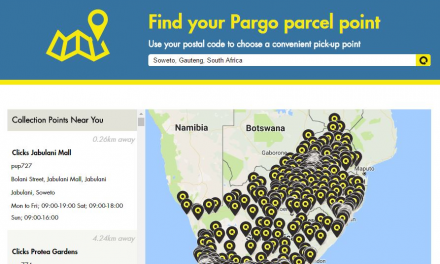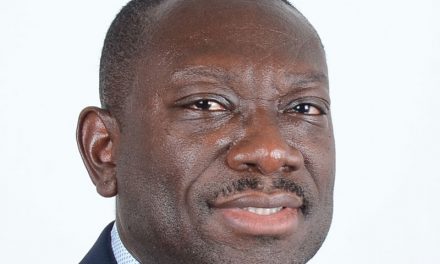
Rebuilding a war-ravaged Post
Congo is a classic example of a developing post faced with challenges the developed world can barely imagine. Mail & Express Review editor John Modd’s interview with Brigitte Olga Manckoundia brings into focus both the fallout from civil war and the determination to build a brighter future.
Birgitte Olga Manckoundia is the General Director/Inspector General of SOPEC (National Society for Posts and Savings Services), the national postal operator in Congo.
She studied management in Congo and France. She holds a degree of Inspector and Chief Inspector of postal and financial services in Cameroon and France. She ran four divisions of the post before being appointed to her current role.
She is also Patron of the Management and Business Administration College of Brazzaville (ESGAE), and an Adviser to the Congolese Federation of Clubs, Centres and Associations of UNESCO.
I began by asking Manckoundia to give our readers some background on Congo, a country devastated for many years by war and unrest. What happened to postal services during that period?
I discovered that the Republic of Congo is a large but poor country. It covers an area of 342,000 square kilometres with a population of around 3.8m, two thirds of whom live in urban areas. GDP per capita is US$3,658. Life expectancy is a little over 55 years but there is a relatively high literacy rate of 86%. The main natural resources are oil and wood.
“During the events which bereaved our country many years ago, a great number of post offices were actually destroyed. The Government has been progressively rehabilitated and rebuilt the postal infrastructure,”Manckoundia explained. But there is still a lot to do. For instance, in 1997 there were 106 post offices: in 2009 only 47.
We discussed the establishment of the current postal organisation in Congo, and its role.
The post in its present form was created in July 2001 and commenced operations in March 2003. It has just over 300 employees.
SOPECO operates under a 30 year concession from the government and is tasked with providing universal, affordable postal services.
Its priorities are:
–the rehabilitation and modernisation of the network;
–the development of modern postal financial services; and
–the establishment of new mail distribution centres, hubs and secondary centres throughout the country, independent of post office locations.
The post is not profitable. ‘We still have an imbalance which does not allow us, in spite of our best efforts, to easily carry out all the tasks included in our action programme’ the General Director explained.
From our discussion it became clear laws promulgated in November 2009 provide an important framework for going forward. I asked her to explain what they contained.
“Yes, we have recently promulgated various laws affecting the postal and electronic communications sectors, including telecommunications and new information technologies.
“The laws determine and define the domain of the universal postal service, the reserved areas and the services open to competition.
“Under the general direction of the Ministry of Communication, the Regulatory Agency of Postal and Electronic Communications is in charge of regulating the sector, and has the power to arbitrate and take sanctions against operators. ”
For many years the market has effectively been open to competition. Manckoundia referred to over 40 private operators. I wanted to know if they are now subject to regulation and if the new laws limit their freedom to operate. What services are reserved to the post under the new laws? What areas will remain open to competition?
“Yes, the private postal operators are subject to the postal law with which they must be in compliance in order not to receive sanctions. Yes, the new law limits their freedom.”
Manckoundia explained that the reserved services are collection, sorting, transportation and distribution of national and international letters of correspondence, for ordinary and EMS services, up to a certain weight to be defined by law. (This text is currently being developed.) Registered mail and mail within a declared value are also within the reserved area.
The post also has the reserved right to issue and sell postal stamps, postage due stamps, official stamps, reply coupons and all other postal fiduciary values, for franking and philately purposes and that are marked “Republic of Congo” or with any other sign, hallmark or symbols of the Republic of Congo.
The services which are open to competition are those which are not included in the above and also the collection, sorting, transportation and distribution of books, catalogues, newspapers and parcels. Services and operations related to funds transfers are also open to competition.
The government and SOPEC are clearly committed to setting up a universal postal service. What does this mean, I asked? For instance, did the post plan to deliver to every address?
“The universal postal service in Congo includes the collection, sorting, delivery and distribution of postal items with a maximum weight of 2 kg; parcels up to 20 kg; registered mail and mail with declared value; and the issue and payment of postal orders. It embraces delivery to private addresses, nationwide, not including electronic communications.
“We are planning to use hybrid mail in the future.
“There will also be a universal postal fund which will be financed by all the companies operating in the postal market. The legal text which covers the operation of these funds is still being developed by the regulator. ”
Importantly, Manckoundia provided a wider context for the introduction of a universal service. It is a means for the Government to achieve its economic and social objectives, and is a weapon in the fight against poverty. Certain services currently under development will also help to bridge the digital divide.
I wanted to know the biggest problems in setting up a proper postal network, issues such as inadequate infrastructure and fiscal constraints.
“The major problems which slow down the activity of SOPECO are related to the postal infrastructure destroyed during the events which happened in our country in the last years. Another issue is the budget which does not make it possible to carry out the entire work activity already programmed.”
She explained that road communications are in a very poor state, and there is only a very limited railway infrastructure. This forces an over-reliance on expensive air transport.
“We have received consultants from the UPU and benefit from the assistance of some sister postal administrations, mainly for the funding of quality of service improvement and material support from the UPU.”
Finally, I asked the General Director what were her top priorities for the next year.
Manckoundia told me that the first priority is “to continue to rehabilitate the postal network, modernise services and management, together with the establishment of a good information system.”
Secondly, there is the need to create specialised centres for mail distribution.
The third priority she outlined was “growth in financial services. We aim to establish partnerships with banks in order to provide services on their behalf.”
And finally, “our main aim is to make the post offices a source of community services for the population”.
Few of us face such tough challenges as Brigitte Olga Manckoundia and her colleagues. We wish them every success as they re-build the postal infrastructure of Congo.
This article was published in September 2010’s Mail & Express Review. To subscribe to the industry’s leading quarterly publication, please click here.













